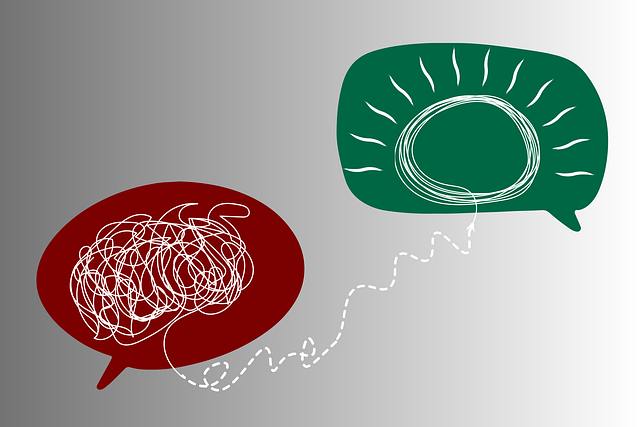Broomfield Major Life Transitions Therapy tackles the significant impact of mental illness stigma in the community by promoting understanding and empathy. They advocate for a shift in perspective through Mind Over Matter principles, offering personalized sessions to develop self-care routines and coping mechanisms. By creating safe spaces for open discussions and educating communities about mental health, they aim to reduce social isolation and improve access to care. The therapy's holistic approach focuses on resilience during life transitions, normalizing conversations around mental health, and empowering individuals to manage their well-being effectively. Through community engagement and collaborative efforts, Broomfield Major Life Transitions Therapy strives to minimize stigma, fostering a supportive environment for emotional healing.
Mental illness stigma, a pervasive barrier to treatment, continues to burden individuals and communities. This article explores comprehensive strategies to reduce this harmful perception, focusing on Broomfield Major Life Transitions Therapy as a holistic model for support. We delve into the profound impact of stigma on mental health, present effective community and healthcare-based interventions, and emphasize the power of individual and familial empowerment in breaking down barriers together. Discover how these efforts are transforming lives and fostering a more inclusive society.
- Understanding Stigma and Its Impact on Mental Health
- Broomfield Major Life Transitions Therapy: A Holistic Approach to Support
- Strategies for Reducing Stigma in Communities and Healthcare Settings
- Empowering Individuals and Families: Breaking Down Barriers Together
Understanding Stigma and Its Impact on Mental Health

Stigma surrounding mental illness can have profound effects on individuals’ well-being and recovery journeys. It often manifests as negative attitudes, stereotypes, and discrimination, creating a barrier to seeking help and support. This perception can lead to social isolation, reduced access to quality care, and even self-stigmatization, where individuals internalize these negative views, affecting their self-perception and willingness to pursue treatment. In Broomfield, the impact of mental health stigma is particularly evident during major life transitions, making it crucial to address this issue head-on.
Understanding the roots of stigma is essential to fostering change. The Mind Over Matter Principles encourage a shift in perspective by promoting empathy-building strategies and self-care routine development for better mental health. By educating communities about the diverse nature of mental illness, we can challenge outdated assumptions and create a more supportive environment. This approach aligns with Empathy Building Strategies, which emphasize connecting on a human level and recognizing that everyone’s experience is unique. Through such initiatives, Broomfield Major Life Transitions Therapy aims to destigmatize mental health issues, enabling individuals to access the necessary support and resources for improved well-being.
Broomfield Major Life Transitions Therapy: A Holistic Approach to Support

Broomfield Major Life Transitions Therapy offers a holistic approach to mental wellness, focusing on supporting individuals through life’s significant changes and challenges. This therapy goes beyond addressing symptoms by integrating mind over matter principles, emphasizing the connection between physical, emotional, and psychological well-being. Through personalized sessions tailored to each client’s unique needs, therapists help individuals develop effective coping mechanisms for stress management. By fostering a safe and non-judgmental environment, this approach encourages open discussions about mental health struggles, aiming to normalize conversations and reduce stigma.
Broomfield Major Life Transitions Therapy empowers clients to navigate life transitions with resilience, ensuring they have the tools to maintain mental wellness as they face changes, whether it’s a new job, relationship status shift, or personal loss. This comprehensive support system not only helps individuals manage immediate stressors but also equips them with long-term strategies for emotional well-being.
Strategies for Reducing Stigma in Communities and Healthcare Settings

Reducing stigma associated with mental illness is a multifaceted effort that requires strategies tailored to both communities and healthcare settings. In community spaces, educational initiatives play a pivotal role in dispelling myths and promoting understanding. Workshops, seminars, and awareness campaigns can highlight the reality of mental health struggles, emphasizing that these are common human experiences rather than personal failings. Engaging community leaders, influencers, and local organizations in these efforts can amplify their impact.
Healthcare settings, especially those offering Broomfield Major Life Transitions Therapy, should prioritize creating welcoming environments. This involves training staff to handle sensitive conversations with empathy and compassion. Incorporating patient-centered care approaches, where individuals feel heard and respected, fosters trust and encourages those struggling with mental health issues to seek support. Additionally, integrating programs focused on confidence boosting, self-esteem improvement, and emotional healing processes can significantly contribute to stigma reduction by empowering individuals to take control of their well-being.
Empowering Individuals and Families: Breaking Down Barriers Together

Mental illness stigma reduction begins with empowering individuals and families to share their stories and seek support. By breaking down barriers together, we can foster understanding and acceptance within communities. Broomfield Major Life Transitions Therapy offers a safe space for people to navigate challenging emotions and experiences, helping them build resilience and cope with life’s twists and turns.
Through collaborative efforts, therapy sessions, and Crisis Intervention Guidance, individuals gain valuable tools to manage their mental health proactively. Risk Management Planning for Mental Health Professionals plays a crucial role in ensuring these support systems are equipped to handle diverse needs effectively. Additionally, Empathy Building Strategies taught within these programs foster deeper connections, encouraging non-judgmental attitudes that are essential for stigma reduction.
Mental illness stigma, a significant barrier to seeking help, can be reduced through multifaceted efforts. By raising awareness, fostering understanding, and implementing holistic approaches like Broomfield Major Life Transitions Therapy, we can create supportive communities and healthcare settings. Empowering individuals and families to share their experiences plays a crucial role in breaking down barriers and promoting mental health equality. Together, these strategies can lead to a more compassionate and inclusive society where everyone feels comfortable seeking support when needed.














